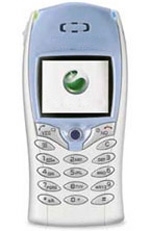Nearly one in three adults say the cell phone is the invention they most hate but cannot live without, according to the eighth annual Lemelson-MIT Invention Index study.
The cell phone narrowly beat the alarm clock and television for the distinction in the survey, which gauges Americans' attitudes toward invention. Razors, microwaves, coffee pots, computers and vacuum cleaners were also cited as essential yet despised inventions.
While the Invention Index found a vast majority of Americans believe inventions have improved the quality of life in the United States, their strong feelings toward cell phones illustrate both the benefits and unintended consequences of innovation.
"Cell phones have clearly been beneficial in terms of increasing worker productivity and connecting people with family and friends," said Merton Flemings, director of the Lemelson-MIT Program. "However, the Invention Index results show that the benefits of an invention sometimes come with a societal cost."
The good news is that invention is cumulative. "Side effects or limitations of an invention create new opportunities for further innovations," said Flemings, the Toyota Professor Emeritus in materials science and engineering.
In addition to cell phones, the Lemelson-MIT Invention Index also looked at the impact of popular inventions such as e-mail, voicemail, and credit and debit cards. Teens overwhelmingly believed e-mail (81 percent) and voicemail (71 percent) make life simpler. Adults agreed to a lesser extent; roughly three out of five said e-mail (59 percent) and voicemail (58 percent) have made life easier.
Interestingly, teens have mixed reactions about credit and debit cards. Only 32 percent said they make life easier, while 26 percent said they make life more difficult and 39 percent felt they make life both simpler and more difficult. Half of the adults surveyed said the benefits of credit and debit cards outweigh any disadvantages.
When asked how globally competitive the United States will be 10 years from now in terms of invention, 57 percent of adults and 55 percent of teens surveyed said America will be losing ground to other countries.
These perceptions support preliminary observations from a recent Lemelson-MIT Program workshop on intellectual property that found that foreign entities are likely to receive more U.S. patents within the next few years than American entities.
The survey also found that an equal proportion of Americans believe the responsibility for encouraging invention and innovation falls equally to industry and universities (26 percent each). Twenty-one percent thought the responsibility lies with primary schools. Only 14 percent said government plays a role.
Taylor Nelson Sofres Intersearch conducted the 2004 Lemelson-MIT Invention Index survey from Nov. 12-19, 2003. A nationally representative sample of 1,023 adults and 500 teenagers was used.
A version of this article appeared in MIT Tech Talk on January 28, 2004.






